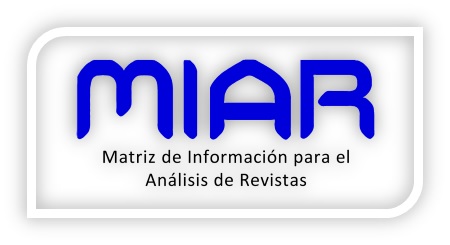Migrant knowledge before the outdoor shelter
Dossier Intemperie: políticas de la voluntad y poéticas del cobijo
Keywords:
Migration, Shelter, Outdoors, RefugeesAbstract
The migration that today moves along the routes extending from Central America to the United States. and other precarious migrant trails across the Americas. generally represents a pursuit of refuge for those who unable to find adequate protections from the insecurities of their homeland. Contemporary processes of migration, that may go on unresolved for years, for these migrants likewise imply a prolonged exposure to the dangers of unsheltered spaces, and the dream of asylum (whether legal or informal) becomes virtually unreachable. People are expelled from their countries of origin and made into migrants, who later are subjected to exclusions or deportations from the countries in which they aspire to settle. Notions of refuge, cover, and asylum become nearly synonymous with vulnerability, neglect, and disregard. For contemporary migrants, lack of shelter is an ubiquitous condition, and migration has assumed an inevitable and perhaps perpetual attribute of precarity. This scenario leads to situations that seem illogical, in which migrants themselves choose to remain unsheltered, but that may also reflect the rationality of social actors whose agency must be interpreted via the precarities of their lives and the volatilities of their surroundings. In their testimonial narratives, migrants can be observed accommodating themselves to the extreme conditions of being left unsheltered out of need, but at other times it seems that where the autonomy of migration is best affirmed is in the shelter of the open air.
Downloads
References
Alto Comisionado de las Naciones Unidas para los Refugiados. (2020). Situación en Venezuela. ONU. https://www.acnur.org/situacion-en-venezuela.html
Bonvillani, A. (2017). Pensar en la intemperie: tensiones ontológicas-epistemológicas y metodológicas en la producción de la “subjetividad política”. Quaderns de Psicologia, vol. 19, núm. 3, pp. 229-240. Barcelona: UAB. https://raco.cat/index.php/QuadernsPsicologia/article/view/331916
Calvillo Vázquez, A. L. (en prensa). El desalojo de los residentes de El Bordo en Tijuana: una profilaxis social contra poblaciones precarizadas. En: Irwin, R. y Meneses, G. A. (eds.), Humanizando la deportación: narrativas digitales desde las calles de Tijuana. Tijuana: El Colegio de la Frontera Norte.
Centro de Derechos Humanos. (2021). Caminantes de ida y vuelta. El flujo de caminantes venezolanos por el continente en tiempos de pandemia. Caracas: Universidad Católica Andrés Bello.
Davis, I. (2017). Sobrevivir al Bordo. Humanizando la deportación, #20. http://humanizandoladeportacion.ucdavis.edu/es/2017/08/03/sobrevivir-al-bordo-parte-i/
Del Monte, J. A. e Irwin, R. M. (2021). Vulnerabilidad de personas migrantes en Tijuana a un año de la pandemia. Tijuana: Colegio de la Frontera Norte.
Dubuisson, P. U. (2018). Sobrevivientes: ciudadanos del mundo. Tijuana: Ediciones ILCSA.
Florido, A. (8 de septiembre de 2013). Advocate for Tijuana deportees dies at 67. KPBS. Universidad Estatal de San Diego. https://www.kpbs.org/news/border-immigration/2013/09/08/advocate-for-tijuana-deportees-dies-at-67
Irwin, R. M. (ed.). (2022). Migrant feelings, migrant knowledge: building a community archive. Austin: University of Texas Press.
Migrante hondureño. (2022). Ya en el otro lado. Humanizando la deportación, #124d. http://humanizandoladeportacion.ucdavis.edu/es/2022/02/23/124d-ya-en-el-otro-lado-parte-iv/
Migrante hondureño. (2019). Después de la caravana. Humanizando la deportación, #124b: http://humanizandoladeportacion.ucdavis.edu/es/2019/05/28/166-despues-de-la-caravana/
Migrante hondureño. (2018). Desde la caravana. Humanizando la deportación, #124a. http://humanizandoladeportacion.ucdavis.edu/es/2018/11/21/124-desde-la-caravana/
Organización Internacional para las Migraciones. (s/f). Missing Migrants Project. Suiza. https://missingmigrants.iom.int/region/americas. Consultado el 28 de enero de 2023.
Oviedo, D. (2019a). Historias de la caravana Parte III. Humanizando la deportación, #166c: http://humanizandoladeportacion.ucdavis.edu/es/2019/12/03/166c-historias-de-la-caravana-parte-iii/
Oviedo, D. (2019b). Historias de la caravana Parte IV. Humanizando la deportación, #166d: http://humanizandoladeportacion.ucdavis.edu/es/2019/12/03/166d-historias-de-la-caravana-parte-iv/
Ordoñez, J. T. y Ramírez Arcos, H. E. (2019). (Des)orden nacional: la construcción de la migración venezolana como una amenaza de salud y seguridad pública en Colombia. Revista Ciencias de la Salud, vol. 17, pp. 48-68. Colombia. https://revistas.urosario.edu.co/xml/562/56260436004/html/index.html
Papadopoulos, D., Stephenson, N. y Tsianos, V. (2008). Escape routes: control and subversion in the 21st century. Londres: Pluto Press.
Reyes, J. L. (2018). Un migrante: aventuras y advertencias desde las calles de Tijuana. Humanizando la deportación, #76: http://humanizandoladeportacion.ucdavis.edu/es/2018/09/17/76-un-migrante-aventuras-y-advertencias-desde-las-calles-de-tijuana/
Rosagel, S. (23 de noviembre de 2018). El padre Solalinde advierte: ONG acarrea a traficantes de armas y de personas entre los migrantes. sin embargo. México. https://www.sinembargo.mx/23-11-2018/3501913
Sánchez Pérez, G. (2017). Crueles deportaciones. Humanizando la deportación, #1: http://humanizandoladeportacion.ucdavis.edu/es/2017/05/18/crueles-deportaciones/
Schindel, E. (2020). Desiertos, mares, islas: geografías de intemperie como espacios de desaparición en contextos migratorios. Papeles del CEIC, papel 228. País Vasco. https://ojs.ehu.eus/index.php/papelesCEIC/article/view/20909
Torre Cantalapiedra, E. y Mariscal Nava, D. M. (2020). Batallando con la frontera: estrategias migratorias en tránsito de participantes en caravanas de migrantes. Estudios Fronterizos, vol. 21. México. https://doi.org/10.21670/ref.2005047
Trotta, T. (11 de marzo de 2019). Huir de Venezuela a Colombia con pies de plata. Diario El País. España. https://elpais.com/elpais/2019/03/03/planeta_futuro/1551628868_444378.html
Varela, A. y McLean, L. (2019). Caravanas de migrantes en México: nueva forma de autodefensa y transmigración. Revista CIDOB d’Afers Internacionals, núm. 122, pp. 163-185. Barcelona. https://doi.org/10.24241/rcai.2019.122.2.163
Downloads
Published
How to Cite
Issue
Section
License
Copyright (c) 2023 Etcétera. Revista del Área de Ciencias Sociales del CIFFyH

This work is licensed under a Creative Commons Attribution-NonCommercial-ShareAlike 4.0 International License.
Aquellos autores/as que tengan publicaciones con esta revista, aceptan los términos siguientes:
- Los autores/as conservarán sus derechos de autor y garantizarán a la revista el derecho de primera publicación de su obra, el cuál estará simultáneamente sujeto a la Licencia de reconocimiento de Creative Commons que permite compartir, copiar, distribuir, ejecutar y comunicar públicamente la obra, siempre que: 1) se cite la autoría y la fuente original de su publicación (revista, editorial y URL de la obra); 2) no se use para fines comerciales; 3) En caso que se transforme o genere una obra derivada a partir de esta obra, deberá compartise bajo las mismas condiciones establecidas por esta licencia.
- Los autores/as podrán adoptar otros acuerdos de licencia no exclusiva de distribución de la versión de la obra publicada (p. ej.: depositarla en un archivo telemático institucional o publicarla en un volumen monográfico) siempre que se indique la publicación inicial en esta revista.
- Se permite y recomienda a los autores/as difundir su obra a través de Internet (p. ej.: en archivos telemáticos institucionales o en su página web) luego de la publicacion del articulo, lo cual puede producir intercambios interesantes y aumentar las citas de la obra publicada. (Véase El efecto del acceso abierto).
- El titular del copyright es Etcétera. Revista del Área de Ciencias Sociales del CIFFyH.
















